How Dungeons & Dragons shaped every corner of PC gaming
"I think D&D influenced everyone in the computer game business back in the '80s and '90s."
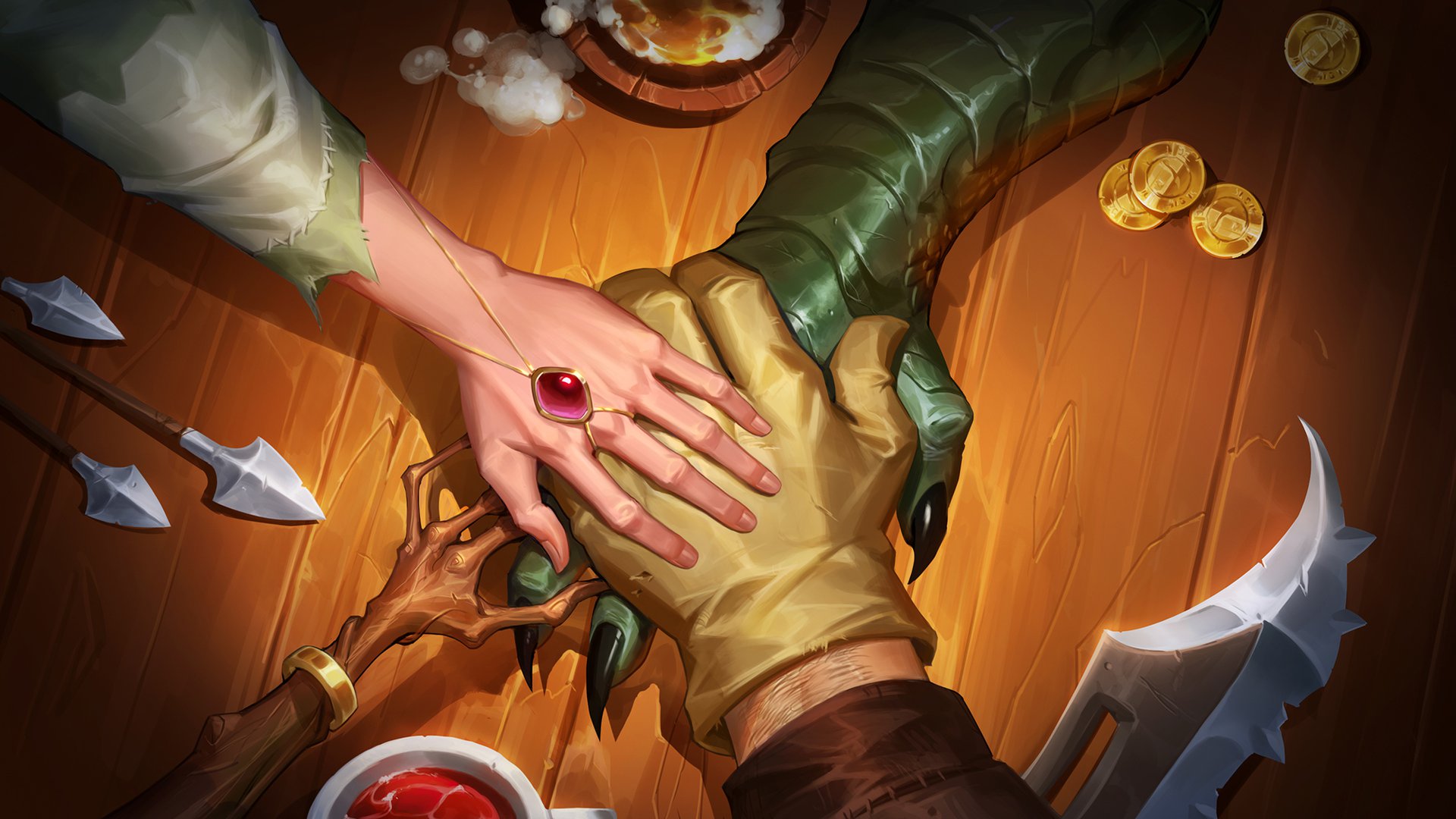
It explains a lot about Warren Spector, the driving force behind Deus Ex, that his first dungeon master was the author Bruce Sterling. Not only was Sterling destined to become one of the fathers of cyberpunk—the science fiction genre that spliced future tech with social commentary, just as Deus Ex would—but he was a generous and accommodating DM.
"What was most powerful about that first night, and all the nights that followed for the next ten or so years, wasn't the story Bruce was telling to us," Spector says. "It was the story my friends and I were telling with him."
Spector's head still swims with memories of the Rat Gang, the street crew he ran with as Botara Chitan, a samurai who never smiled. He remembers the way the gang fought and grasped and became a real power in the river city of Shang, and how the campaign ended with… well, he won't tell us how it all ended. "I'll get too emotional," he says, "and embarrass myself.
Like all good dungeon masters, Sterling understood that his role was to create the scaffolding of a story, an obstacle course that left enough room for players to pick a route through, whether that meant clambering over the top or crawling beneath. As Spector and his friends overcame the challenges Sterling set for them, they made choices that felt significant.
Decisions that belonged to them.
"If that doesn't sound like the kind of videogame I've basically been screaming about for the last few decades, I guess I'll just have to scream louder," Spector says. "All I've ever wanted to do was give people a taste of what I felt playing D&D."
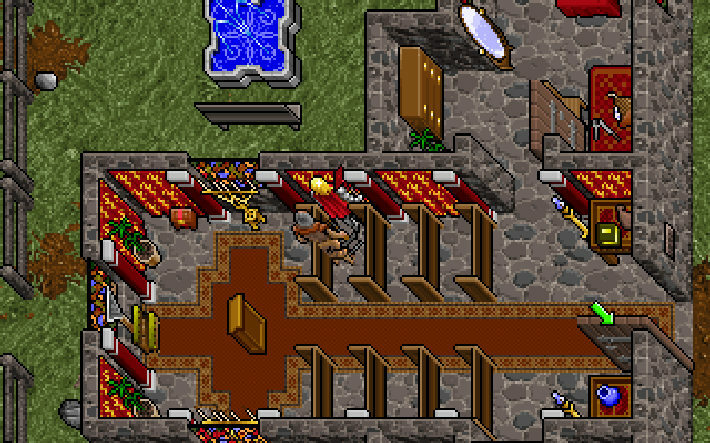
Origin story
After a brief spell at D&D's publisher in the '80s, Spector set about applying his love of shared authorship to PC games, working under Richard Garriott at Origin Systems.
The biggest gaming news, reviews and hardware deals
Keep up to date with the most important stories and the best deals, as picked by the PC Gamer team.
"I think D&D influenced everyone in the computer game business back in the '80s and '90s and that was certainly true at Origin," he says. "The Ultima games were about more than killing monsters and grabbing treasure. They were about embodying an avatar that was, basically, you, the player, deciding how to interact with the world based on your own desires and ideas as a person in the real world. You weren't trying to guess what your character would do or what the designer wanted you to do. It was you making the calls. It was all pretty primitive back then, but it was heading in the right direction."
As a producer on the early games of Looking Glass, the developer behind System Shock and Thief, Spector had a hand in defining the immersive sim genre. Though these games looked more like first-person shooters than any tabletop adventure, they did exactly as a DM would—present the player with an obstacle, then try to accommodate their most imaginative solutions.
"The idea is to allow players to do anything they want and not disappoint them," Spector says. "Ideally, the game should never figuratively say, ‘I don't know anything about that.' Something logical should happen no matter what players do."
Spector began banning his teams from using the word ‘puzzle', which implied a single solution, and encouraged them to think up ‘problems' instead. He told them to "get off the stage, so players can get on it". It's an approach that led directly to Deus Ex.
"Deus Ex was about solving problems the way you wanted," he says. "It was about trying things, experimenting, expressing your creativity, and then dealing with the consequences of your choices.
"The story, as much as people seem to like it, is really there just to provide context, significance and structure to the player's minute-to-minute choices. That's totally D&D in a nutshell."
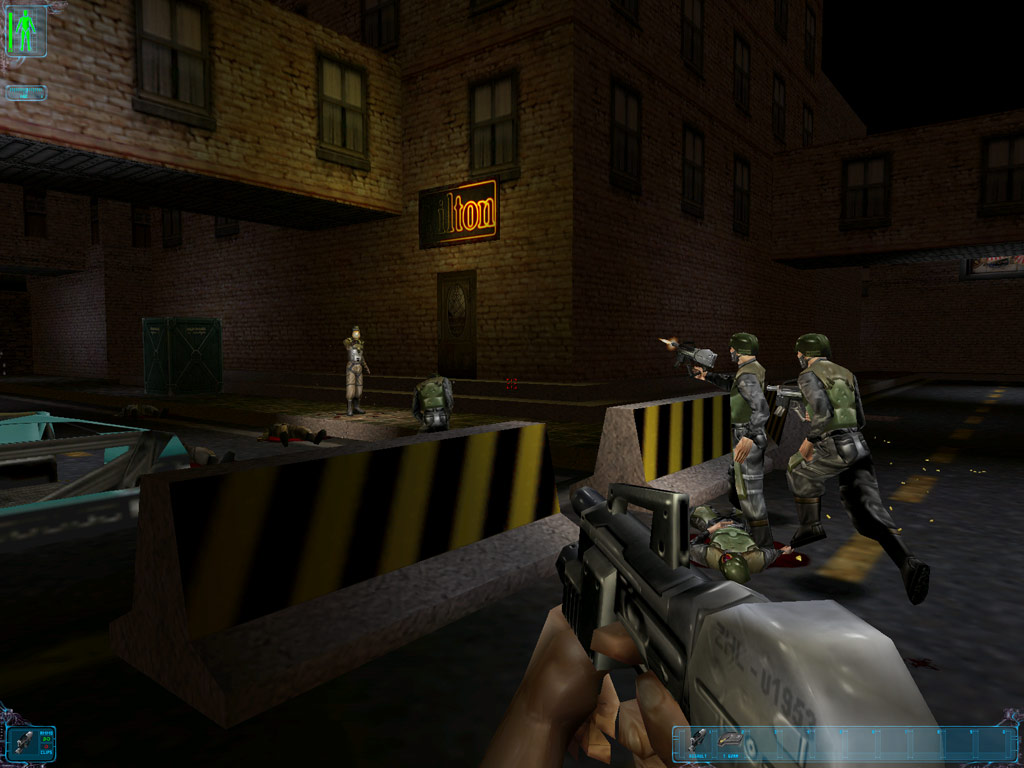
Playing it wrong
Once Deus Ex was built, Spector was delighted to discover that it recreated a great, subversive joy of the tabletop: stumping the DM. "There were plenty of times I watched Deus Ex players encountering a problem and trying something I'd never seen anyone try before, and found myself wondering, ‘Is that going to work?'" he says. "And then, whether it worked or not, having the game respond in a logical way? Man, that was powerful. And all D&D."
In the years since, the designers who worked under Spector have disseminated across the games industry. One, Emil Pagliarulo, led design on Fallout 3 and 4. Another, Kent Hudson, became game director of Watch Dogs: Legion. Many are now at Arkane, working on Deathloop and Redfall. All have embraced some variation of the dungeon master role, forefronting creative problem solving in their games, which in turn have taken over PC gaming.
Still, Spector thinks some developers get the wrong end of the stick. "A lot of RPG developers think roleplaying is about character classes and skills and abilities and stats and secret die rolls," he says. "That's true of D&D, but only because those were the only simulation tools Gary Gygax and Dave Arneson had. Videogames can and should be about roleplaying, not roll-playing."
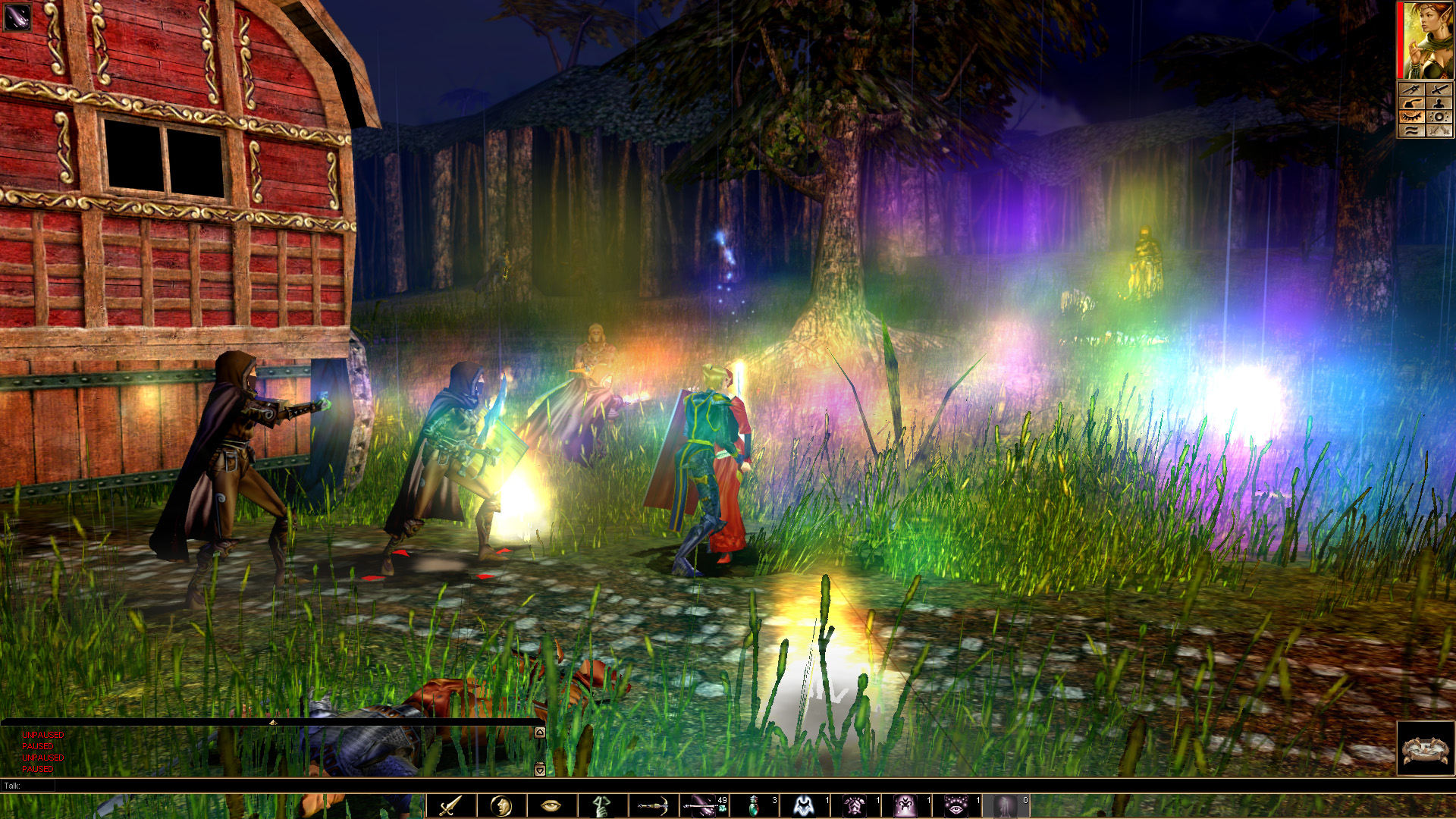
Roll out
Of course, there's no reason games can't do both. Bioware, which worked on three officially licensed D&D games, was understandably preoccupied with reproducing the tabletop ruleset —down to the 1d4+1 damage caused by a magic missile. Yet its origin point wasn't so different to Spector's, and yielded just as much inspiration.
Half the key characters in the Baldur's Gate games were initially player characters in a D&D campaign.
Half the key characters in the Baldur's Gate games—including their villains, as well as fan favourite companions like the psychopathic red wizard, Edwin—were initially player characters in a D&D campaign run by designer James Ohlen. "While he was in high school he owned a comic book store," recalls Bioware cofounder Trent Oster, "and he would run play sessions upstairs." Programmer Cameron Tofer played Minsc, but fumbled his Intelligence roll—and so birthed the breezily braindead barbarian we know and love today. Ohlen was ultimately hired by Bioware almost by default, despite having no development background—he was the DM, and the party needed him. By the time he left the company 22 years later, he was its senior creative director.
After Neverwinter Nights, Bioware moved on from D&D—but the influence of its min-maxing ruleset could still be felt in Knights of the Old Republic, Dragon Age, and the RPG industry that grew around the studio.
What's more, those rules came with a worldview.
"It's almost a philosophical thing," Oster says. "The concept of the group being mighty because of the combination of different abilities, backgrounds, and viewpoints. D&D preaches the bible of diversification, and it always has. You realise that the group is greater than the one."
It's an idea that resonated with the public, particularly when Mass Effect leaned into the emotional—even romantic—connection with the party. Today, the concept of the RPG companion is a widely understood part of pop culture, rooted in Bioware's appreciation for D&D.
You could say the same for the famous moral choices that pepper the studio's games. First popularised by Knights of the Old Republic, on which Ohlen was lead designer, they can be clearly traced back to D&D's alignment chart—which judges every character as good, neutral or evil.
"The concept of good and evil was a big thing at Bioware," Oster says. "Most games at that point were really focused on you doing the right and just thing, whereas almost everything we did allowed you to try being bad. That duality came out of pen and paper. When you're playing D&D, sometimes your party are jerks, and your DM lets you roll and see where it goes. A lot of that player freedom came from those D&D roots."
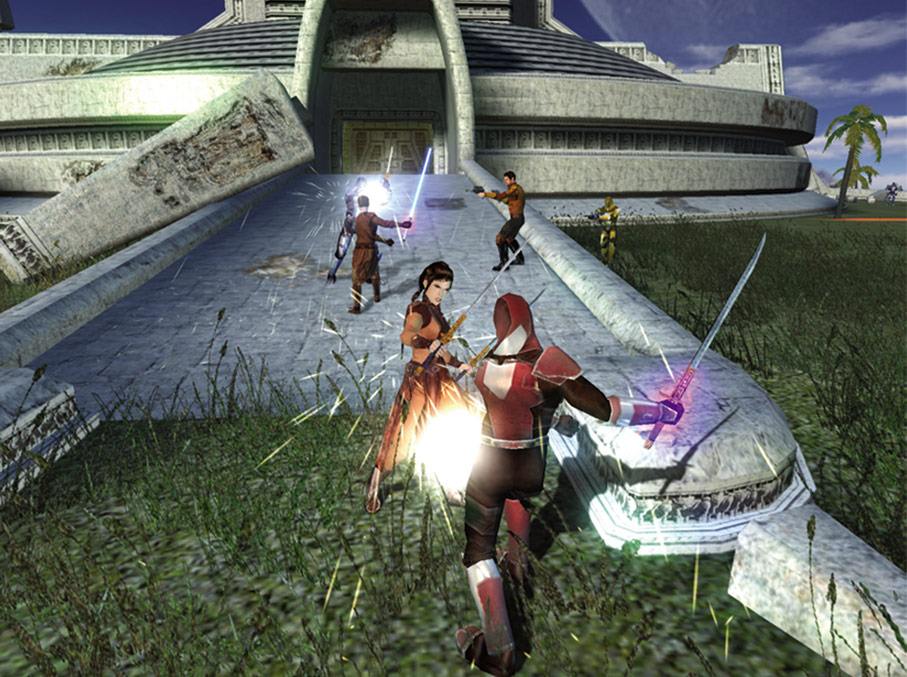
Impending doom
id Software's dungeon master, John Carmack, allowed his party to be jerks. But he pulled out the ultimate consequence in response—the end of the world.
"Yeah, that was my fault," says Doom designer John Romero. "I was greedy and underestimated the power of demons." When the party came across a pentagram in its adventures, the summoned demon trapped inside tempted Romero with powerful items in return for its freedom: a +5 sword, a ring of regeneration, and a ring of invisibility. "I wanted that stuff badly," Romero says. Once freed, the demon made good on the deal, but offered a few ominous words, "It won't matter anyway. We're taking over this world.
"We all spent the next month battling demons, hiding, watching powerful heroes lose the fight, and eventually the world was wiped out. That was the last time we played D&D together."
It may have been a cruel conclusion to the party's journey, but Romero insists that Carmack was a "very fair DM" who was "true to his own rules". "He was always rolling secret dice because there were so many ways that things could go wrong or be revealed," he says. "A random chance encounter could happen. There was never a dull moment."
It was Carmack who lost most in the demonic fire—a huge, personalised world of at least 100 NPCs operating their own schemes. Yet his loss was our world's gain, since those D&D sessions inspired the premise for Doom, a game about a Martian base overrun by invaders from hell.
"We never thought that the D&D games we were playing would end up influencing our game designs," Romero says. "It just flowed easily and was enthralling. We all liked playing together. No one pored over stat sheets, and no battle or rewards were held up due to some arcane rule lawyering. D&D was yet another way that we gelled as a team.
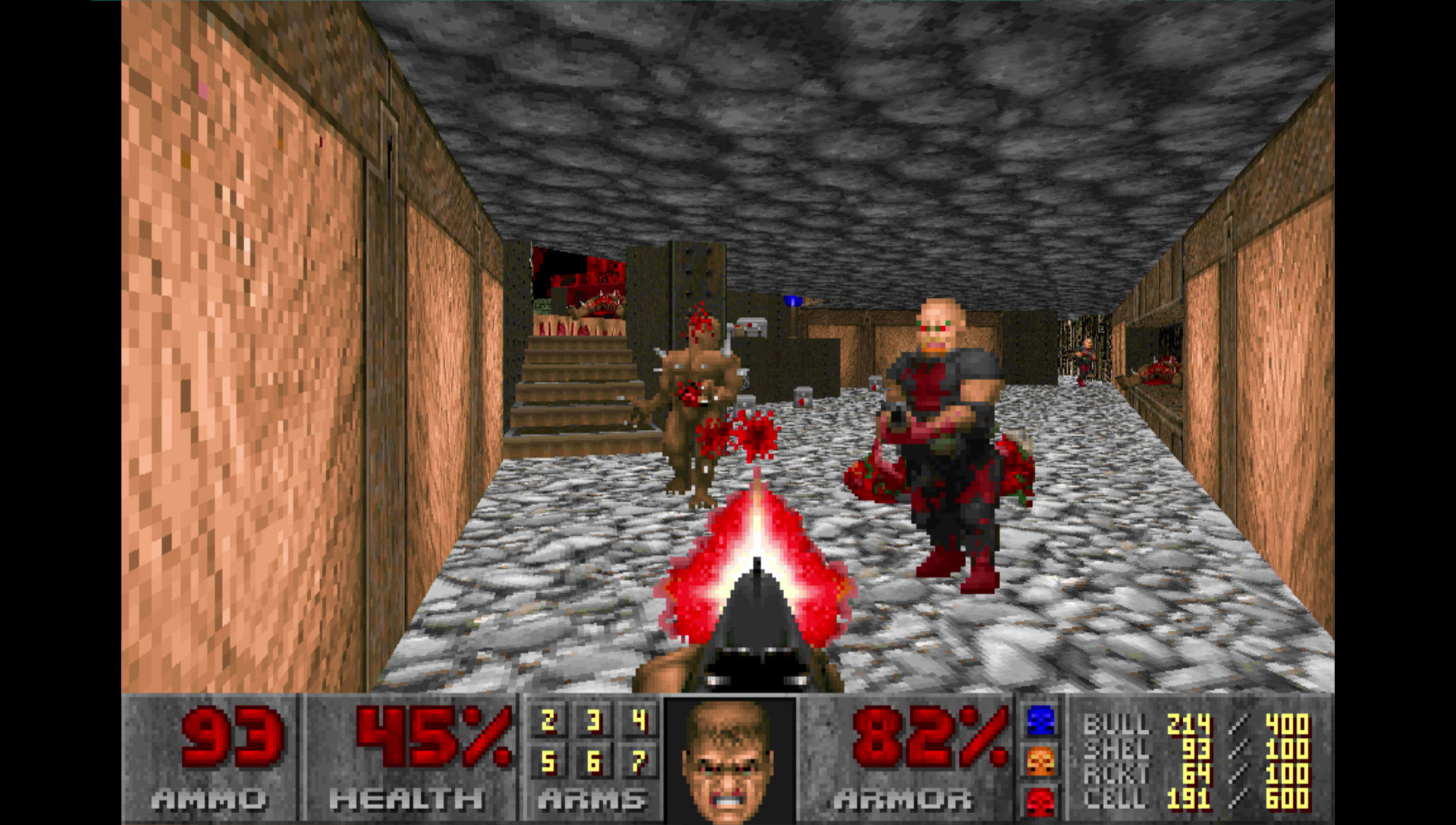
Shake up
One of Carmack's NPCs was called ‘Quake'. He belonged to a group called the Silver Shadow Band, which worked for an organisation named Justice. After a few adventures in Quake's company, the id Software team thought he was cool enough to be the protagonist of a videogame.
"We started working on it in January 1991," Romero says, "but the tech wasn't good enough and we cancelled it." After Doom, Romero returned to the idea—dreaming up an action game that would have armed players with a huge hammer that cracked the earth, and seen them accompanied by a sentient artefact called the Hellgate Cube. You can see remnants of that design in the finished FPS that shares Quake's name—especially the medieval aesthetic and D&D-esque locations, like the Ogre Citadel and Wizard's Manse. Its oppressive, dark fantasy atmosphere is embedded deep in the memories of a generation of PC gamers, and is an important influence on modern indie shooters.
Even after leaving id Software, those D&D sessions lived large in Romero's memory. He named his breakaway project, Daikatana, after the very +5 sword that got his party into so much trouble. Perhaps that was tempting fate: Daikatana would prove to be a notoriously troubled project.
Today, you can find D&D in the bones of Romero Games' strategy game, Empire of Sin. "D&D will forever be a part of any video game that requires calculations to resolve conflict, to get loot drops, to define character traits," Romero says. "D&D is all about progression and making sure the calculations work as characters progress. Those core elements ensure that players remain interested because they are evolving with the game.
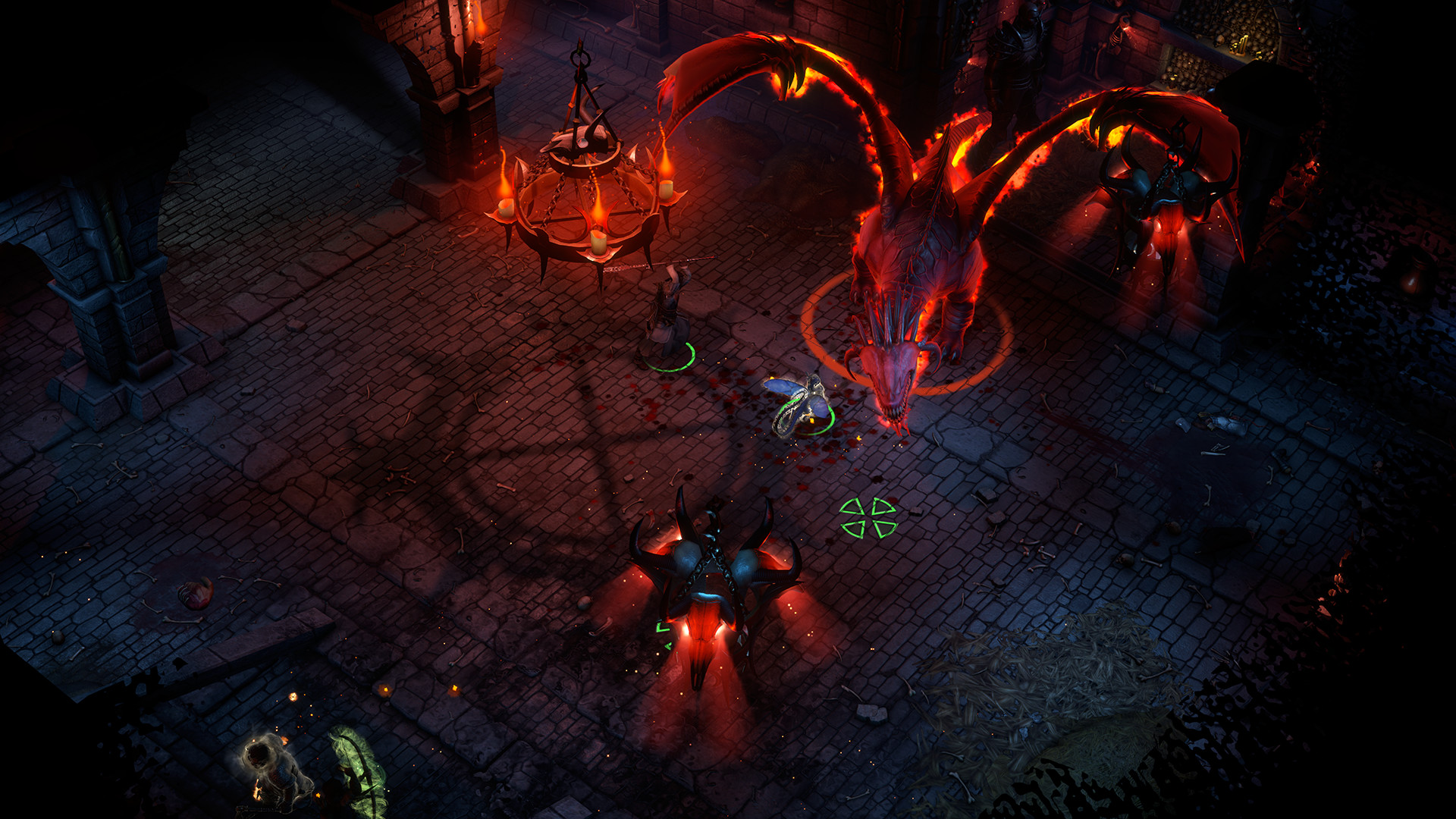
New experience
It's these latter concepts—of XP and levelling up—that might be D&D's most pervasive contribution to PC gaming. They provide essential punctuation to Diablo and Destiny, keep COD players killing, and grant The Witcher III its slowburn structure. Strip away those fundamental ideas, and it's hard to imagine what PC gaming would even look like.
"It's funny," Spector says. "I'm actually a proponent of not focusing on XP and levelling, but it seems like most of my games include them no matter how I feel about it. I'll never quite understand that. I guess it's impossible, at least for me, to leave D&D behind completely." Spector recognises, grudgingly, why the stats and skills he speaks so disdainfully of have spread so far—even if he doesn't recognise them as the spirit of D&D. "Players ‘get' that approach to roleplaying," he says. "It makes it easier to inhabit an avatar you created systemically, rather than one you create on the fly through your in-game behaviour. Familiarity breeds comfort and comfort leads to a kind of enjoyment."
D&D is all about progression and making sure the calculations work.
The immersive sims that capture the sense of freedom Spector first felt at Bruce Sterling's table are, he admits, intimidating. "They force you to think and, in a weird way, take responsibility for your actions," he says. "Because they're your actions, not your character's. You have to stop, assess, plan and only then act. If we're being honest, all that stuff is work —fun work, but work. Tabletop RPG tropes are simple, well understood and put the focus on the character and the designer's story. That's comfortable for players." It's not the end of the story, however. In 2021, PC developers are working to tie roleplaying and roll-playing together. Just look at Baldur's Gate III. Larian's upcoming RPG is an officially licensed D&D product, which mimics the ruleset of the boxed game and copies its creatures straight from the Monster Manual. Yet more than that, it's an immersive sim by Spector's definition: a world full of obstacles you can overcome through simulated stealth or intense combat, by manipulating objects in the environment, or by talking your way out of trouble. A sturdy platform of story scaffolding on which to drape your adventures.
D&D has delved into and conquered every last nook of PC gaming. And now, finally, the party seems to be coming back together.
Jeremy Peel is an award-nominated freelance journalist who has been writing and editing for PC Gamer over the past several years. His greatest success during that period was a pandemic article called "Every type of Fall Guy, classified", which kept the lights on at PCG for at least a week. He’s rested on his laurels ever since, indulging his love for ultra-deep, story-driven simulations by submitting monthly interviews with the designers behind Fallout, Dishonored and Deus Ex. He's also written columns on the likes of Jalopy, the ramshackle car game. You can find him on Patreon as The Peel Perspective.

